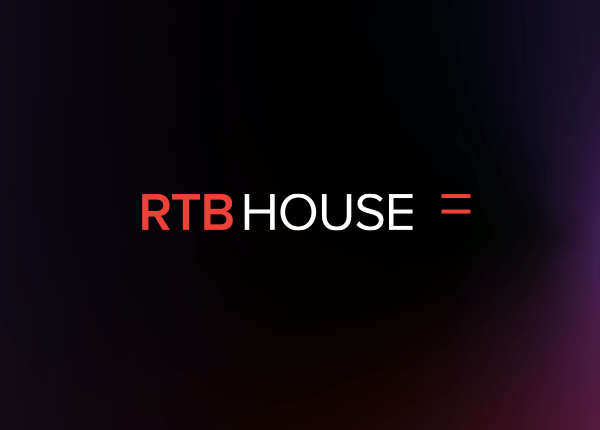Last Updated on: 26th May 2024, 07:48 pm
In this Media Review, you can read about Privacy Sandbox’s General Availability, rebranding of First-Party Sets and enlarging its scale, further obstacles in the way of tracking individual users across the Internet, and regulatory updates in Europe.
Table of Contents:
- Privacy Sandbox for the Web reaches general availability—Privacy Sandbox
- Related Website Sets—the new name for First-Party Sets in Chrome 117—Chrome for Developers
- iOS 17 includes these new security and privacy features—TechCrunch
- Tech giants race to alter online operations as EU digital rules bite—Financial Times
Privacy Sandbox for the Web reaches general availability—Privacy Sandbox
= Google’s Privacy Sandbox team officially announces entering the “general availability” stage in Chrome browser for their relevance and measurement APIs, which are: Topics, Protected Audience, Attribution Reporting, Private Aggregation, Shared Storage, and Fenced Frames.
= This means that 97% of Chrome’s users are Privacy Sandbox-enabled, while the remaining 3% is also going to be included as soon as Google is done with some A/B testing (supposedly a few months from now). It provides the entire industry with a very large scale to test the stable version of the solution and be able to provide meaningful feedback.
= The author of the article assures that the next expected milestone, which depends on the deprecation of third-party cookies for 1% of Chrome’s traffic, is going to take place in accordance with the drafted timeline—in Q1 next year.
Related Website Sets—the new name for First-Party Sets in Chrome 117—Chrome for Developers
= Chrome renames First-Party Sets (FPS) as Related Website Sets (RWS) to better reflect the solution’s purpose. The only change to the solution itself is an increase of the associated domain limit from 3 to 5 domains.
= The announcement is shortly followed by the ramp-up of the solution from 10% to 100% of Chrome Stable clients, after being thoroughly evaluated.
= It’s worth keeping in mind that even though FPS changed its name to RWS, the solution hardly changes from the original proposal, which received an industry-wide backlash from privacy advocates. We have pointed out voices of distress raised by TAG and W3C in our previous Media Reviews ([1], [2]) and can supplement it with the fact that Mozilla is also negatively inclined toward RWS (AKA FPS).
iOS 17 includes these new security and privacy features—TechCrunch
= Apple introduces yet another set of privacy-enhancing features in its latest iOS 17, among which we can find one that hinders marketers’ ability to track individuals across different websites—“Advanced Tracking and Fingerprinting Protection” (AKA “Link Tracking Protection”). It is enabled by default in Apple’s Messages, Mail, and Safari’s “Private Browsing” mode, but can also be manually entrenched in Settings to work during regular browsing too.
= What this feature does is detect commonly used user-identifiable tracking parameters applied in URLs (placed in so-called “link decorations”) and remove them before the user is directed to the desired address. However, source, medium, and campaign parameters remain unaffected, so coarse campaign performance can still be recorded.
= Last but not least, tracking of individuals will be further hurt in Chrome, as the Bounce Tracking Mitigation mechanism goes live for 10% of those stable users who have blocked third-party cookies in their settings. This feature depends on preventing bounce tracking—an activity expressed by some third-party vendors, which allows them to bypass users’ third-party cookies blocking settings by creating and reading first-party cookies.
Tech giants race to alter online operations as EU digital rules bite—Financial Times
= European DSA (Digital Services Act), which puts more responsibility on large platforms to police and take down illegal content, goes live. Nineteen such platforms have been designated by the EU as so-called “VLOPs” (Very Large Online Platforms), to which this law applies. While some of them have already been busy preparing to meet requirements (Google enhanced its Ads Transparency Center, and Facebook separated its tracking-based content recommendations from non-personalized content), the others try to dispute the designation (Amazon objected as it feels this should only include companies that distribute information and whose primary revenue was advertising).
= TechCrunch reports that the EU also designated six companies to be DMA’s (Digital Markets Act) “gatekeepers” (you can refresh your memory about what that means by seeing our older Media Review) and their total of 22 “core platform services.” DMA is the second new European regulation, and the recently named gatekeepers are Apple, Amazon, Alphabet, Microsoft, Meta, and ByteDance, while their core platform services include Google’s search engine, Amazon Marketplace, Chrome, iOS, Windows, WhatsApp, YouTube, TikTok, Instagram, and many others).
= In the wake of Meta being sued in a number of countries in Europe for its tracking and profiling of users for ad targeting without their explicit consent, the tech giant is to charge its users in the EU for ad-free Instagram and Facebook, as Financial Times reports. This is supposed to serve as a means to satisfy European regulators. The fees are rumored to be $17 monthly for in-browser use of Facebook and Instagram and $14 monthly to use Instagram in the mobile app.
If you have any questions, comments or issues, or you’re interested in meeting with us, please get in touch.





























